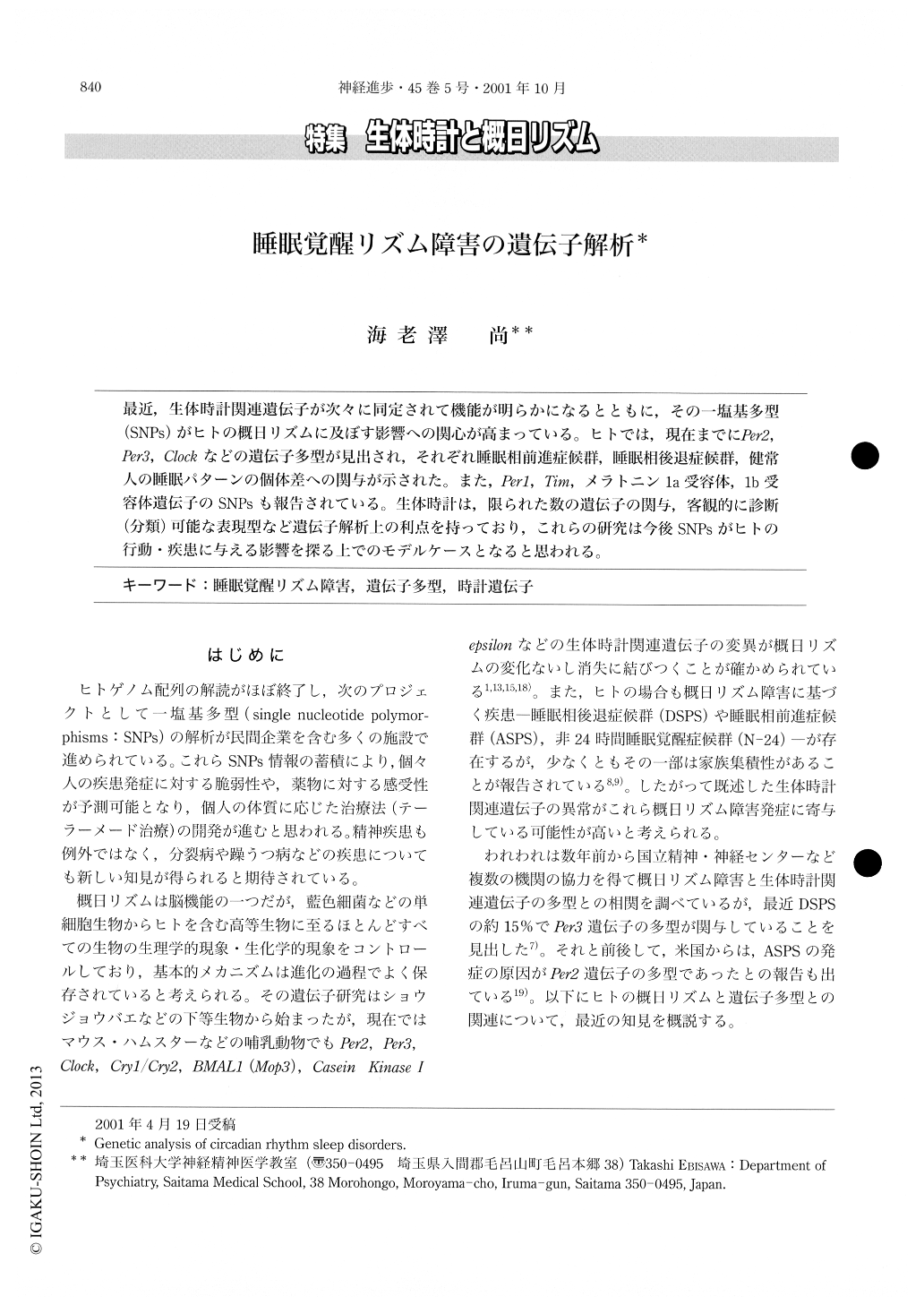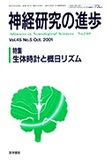Japanese
English
- 有料閲覧
- Abstract 文献概要
- 1ページ目 Look Inside
最近,生体時計関連遺伝子が次々に同定されて機能が明らかになるとともに,その・塩基多型(SNPs)がヒトの概日リズムに及ぼす影響への関心が高まっている。ヒトでは,現在までにRer2,Rer3,CLockなどの遺伝子多型が見出され,それぞれ睡眠相前進症候群,睡眠相後退症候群,健常人の睡眠パターンの個体差への関与が示された。また,PER11 Tim,メラトニン1a受容体,1b受容体遺伝子のSNPsも報告されている。生体時計は,限られた数の遺伝了の関与,客観的に診断(分類)可能な表現型など遺伝子解析上の利点を持っており,これらの研究は今後SNPsがヒトの行動・疾患に与える影響を探る上でのモデルケースとなると思われる。
Identification of clock mutants in mammals prompt us to investigate whether the human circadian behavior is affected by sequence variations in the clock-related genes. To date, single nucleotide polymorphisms (SNPs) have been reported in human Per2, Per3, and Clock genes, which are associated with advanced sleep phase syndrome, delayed sleep phase syndrome, and individual differences of preferred timing of behavior, respectively. SNPs in Perl, Tim, and melatonin la/lb receptor genes have been also detected. Circadian behavior phenotypes are relatively simple compared to other human behaviors and the number of genes involved in the core clock mechanism seems to be limited, therefore, genetic analysis of human circadian behavior has an advantage and would be a good precedent in determination of the relationships between human behavior/disease and SNPs.

Copyright © 2001, Igaku-Shoin Ltd. All rights reserved.


